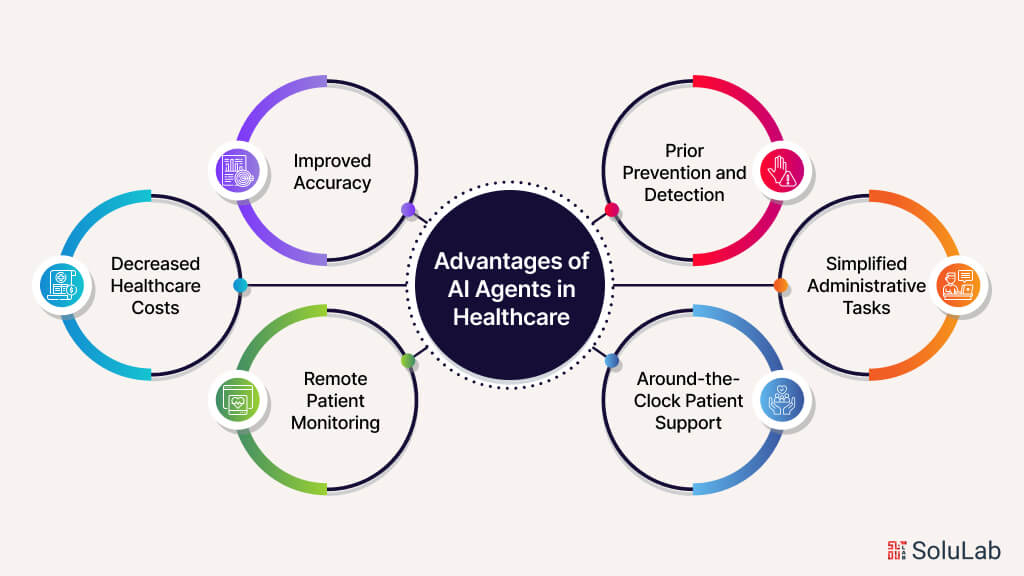Exactly How Insurance Coverage Functions for Senior Citizens: Key Insights Into Medicare and Insurance Coverage Options
Recognizing insurance coverage for seniors, specifically Medicare, is important for reliable healthcare monitoring. Medicare provides necessary protection, but its intricacies can be overwhelming. Seniors need to browse numerous elements, such as Components A, B, and D, along with alternatives like Medicare Benefit and Medigap policies. Each option impacts their financial duties and access to solutions. Unloading these elements exposes considerable understandings that can influence their medical care decisions. What are the vital aspects elders should think about?
Understanding Medicare: A Summary

Medicare Components A and B: What They Cover
Medicare Components A and B give essential coverage for senior citizens, addressing both medical facility and clinical services. Part A focuses on healthcare facility insurance policy, covering inpatient keeps and particular outpatient services. At The Same Time, Component B supplies protection for a series of medical solutions, including physician sees and precautionary treatment.
Healthcare Facility Insurance Policy Protection
How do senior citizens browse the complexities of hospital insurance coverage? Medicare Part A supplies vital healthcare facility insurance coverage, covering inpatient keeps, skilled nursing facility care, hospice solutions, and some home healthcare. This insurance coverage is critical for seniors, as it assists take care of the costs connected with hospitalizations and recovery.Medicare Component B, on the other hand, complements Component A by covering outpatient solutions, consisting of medical professional check outs, precautionary care, and diagnostic tests. Together, these two parts develop a thorough safeguard for elders, ensuring they have accessibility to essential healthcare. Recognizing the differences between Parts A and B permits elders to make enlightened choices regarding their healthcare needs and monetary duties related to hospital services.
Medical Provider Insurance Coverage
While passing through the intricacies of clinical solutions coverage, senior citizens gain from understanding the details offerings of Medicare Parts A and B. Medicare Part A largely covers inpatient health center keeps, proficient nursing facility care, hospice treatment, and some home healthcare services. On the other hand, Medicare Part B focuses on outpatient services, including medical professional sees, precautionary care, diagnostic examinations, and long lasting clinical equipment. In Addition, Component B covers certain psychological health and wellness services and outpatient rehab. Together, these parts provide a detailed framework for handling healthcare requirements. Seniors ought to acquaint themselves with the subtleties of these protection options to guarantee they maximize their advantages and lessen out-of-pocket costs, inevitably improving their access to important clinical solutions.
Medicare Benefit Strategies: An Alternate Method
An expanding variety of seniors are exploring Medicare Benefit Plans as a feasible alternative to standard Medicare. These plans, likewise called Medicare Part C, are supplied by personal insurer and incorporate all advantages of Medicare Parts A and B, usually including extra solutions such as vision, dental, and health care. Numerous seniors appreciate the structured strategy, as these plans normally supply a single policy that covers different health care needs.Medicare Benefit Strategies can present a cost-efficient choice, with some strategies even featuring reduced or no month-to-month premiums. It is important for seniors to assess the network of health centers and doctors connected with each plan, as well as any kind of added out-of-pocket costs that might arise. Inevitably, picking a Medicare Advantage Plan requires cautious consideration of individual health requirements and economic conditions, making sure elders pick the alternative that ideal suits their lifestyle and medical care demands.
Prescription Drug Insurance Coverage: Medicare Component D
Medicare Part D provides essential prescription drug coverage for elders, helping to handle the costs of essential medications. Understanding the enrollment duration is crucial for beneficiaries to optimize their benefits and avoid fines. In addition, expense considerations play a significant role in selecting the appropriate strategy to fit specific health and wellness demands and monetary circumstances.
Coverage Essential Explained
Prescription drug coverage is a vital part of health care for elders, guaranteeing accessibility to essential medications. Medicare Part D provides a selection of plans made to assist cover prescription medication prices. These plans are given by exclusive insurance provider authorized by Medicare and can differ extensively with regard to costs, deductibles, and covered medicines. Recipients normally pay a monthly premium, in addition to copayments or coinsurance for each prescription. It is essential for senior citizens to assess their alternatives each year, as formularies and costs might alter. Some individuals might additionally get approved for Bonus Help, a program that aids with out-of-pocket expenses. Ultimately, understanding these fundamentals permits seniors to make educated decisions concerning their prescription medication insurance coverage.
Enrollment Period Details
Recognizing the various registration durations for Medicare Component D is important for senior citizens seeking to secure their prescription drug protection. The Preliminary Registration Period (IEP) lasts seven months, starting three months prior to a private turns 65 and ending 3 months after. Throughout this time around, senior citizens can enlist in a Part D plan without penalty. The Yearly Registration Period (AEP) runs from October 15 to December 7 annually, permitting beneficiaries to make adjustments to their existing plans or sign up in a new one. Additionally, senior citizens might receive a Special Enrollment Period (SEP) because of particular scenarios, such as moving or losing various other protection. Awareness of these durations is important for making certain appropriate prescription drug coverage.
Price Factors To Consider Summary
While navigating through the intricacies of medical care prices, senior citizens must consider the financial aspects of Medicare Component D, which gives necessary prescription medication insurance coverage. This program includes numerous prices, consisting of regular monthly costs, yearly deductibles, and copayments for medications. Costs can differ substantially based upon the picked strategy and earnings level. Furthermore, beneficiaries may experience a protection space, typically described as the "donut hole," where out-of-pocket expenses boost until reaching a specific investing threshold. Recognizing these expense frameworks is vital for elders to efficiently handle their medical care budget plans. It is a good idea for senior citizens to examine their prescription requires annually, as medications and plan options might change, influencing total expenditures and coverage competence.
Medigap Policies: Supplementing Your Medicare Coverage

Medicaid: Extra Support for Low-Income Seniors
For seniors encountering monetary obstacles, Medicaid acts as a necessary security net, offering important health care insurance coverage and support. This program, provided collectively by federal and state governments, especially targets low-income individuals, including the elderly. Medicaid covers a broad variety of solutions, such as medical facility keeps, medical professional gos to, long-term care, and home health and wellness services, which are fundamental for keeping health and wellness and well-being. Eligibility for Medicaid varies by state, frequently based upon income, possessions, and details clinical needs. Many elders might get both Medicare and Medicaid, recognized as dual qualification, which can help cover expenses that Medicare does not, such as copayments and deductibles. In addition, Medicaid might provide help with prescription drug prices through programs made for low-income recipients. On the whole, Medicaid plays a significant role in making certain that low-income senior citizens have accessibility to needed health care services, promoting better health and wellness outcomes and lifestyle.
Browsing the Registration Refine: Key Timelines and Tips
Just how can elders efficiently navigate the complicated registration procedure for health care insurance policy? Comprehending key timelines is vital. The preliminary registration period for Medicare starts 3 months prior to the specific turns 65, prolongs via the month of their birthday celebration, and continues for three months after. Throughout this period, seniors can sign up in Medicare Component A and Part B without penalties.Additionally, the yearly open registration duration for Medicare Advantage and Component D runs from October 15 to December 7 every year, permitting adjustments in protection. Seniors are suggested to analyze their present health and wellness requirements and testimonial strategy choices during this time.To assist in a smooth registration experience, using sources such as the Medicare web site or contacting state medical insurance help programs can give important advice. Monitoring target dates and required records will further guarantee that senior citizens protect one of the most suitable protection for their healthcare needs.
Regularly Asked Concerns

Can I Keep My Current Doctor With Medicare Coverage?
The question of maintaining a present doctor under Medicare protection commonly depends upon the certain plan picked. Several Medicare Advantage plans might need using a network of service providers, while Initial Medicare normally enables more comprehensive access to medical professionals.
What Occurs if I Miss the Registration Period?
They might encounter delayed coverage, greater costs, or potential penalties if a specific misses the registration period. This situation can result in gaps in healthcare accessibility, motivating the requirement for mindful planning and understanding of due dates
Are Oral and Vision Services Covered by Medicare?
Oral and vision solutions are normally not covered by Medicare. Some Medicare Benefit plans might offer these benefits. Senior citizens should explore their choices to determine if added insurance coverage is available for these vital solutions.
Just how Do I Submit an Issue Concerning My Medicare Plan?
To file a grievance about a Medicare strategy, one must speak to Medicare straight at 1-800-MEDICARE or see their web site. Reporting issues assists boost solutions and guarantees that worries are resolved promptly.
Can I Adjustment My Medicare Plan After Enrollment?
Transforming a Medicare plan after registration is feasible throughout marked durations, such as the Yearly Enrollment Duration or Unique Enrollment Durations (Senior Insurance Agent). Individuals ought to review their choices carefully to guarantee they pick the most effective coverage for their demands
Final thought
In summary, comprehending the complexities of Medicare and its numerous parts is important for elders seeking to maximize their medical care protection. By checking out Medicare Components A and B, Benefit Plans, Component D for prescriptions, and Medigap plans, elders can make informed decisions that decrease out-of-pocket costs. In addition, awareness of Medicaid alternatives offers more support for low-income individuals. Leading the enrollment process with key timelines assurances that seniors can access the essential services they need for their wellness. The program is separated click to read more right into Initial Medicare and Medicare Advantage, each offering distinct advantages and insurance coverage alternatives. While passing through the complexities of clinical solutions protection, senior citizens benefit from understanding the certain offerings of Medicare Components A and B. Medicare this hyperlink Component A largely covers inpatient healthcare facility keeps, proficient nursing facility care, hospice care, and some home health treatment services. A growing number of seniors are exploring Medicare Advantage Program as a feasible alternative to traditional Medicare. Several elders might qualify for both Medicare and Medicaid, known as twin eligibility, which can assist cover expenses that Medicare does not, such as copayments and deductibles. Throughout this period, senior citizens can enroll in Medicare Part A and Component B without penalties.Additionally, the annual open enrollment period for Medicare Advantage and Part D runs from October 15 to December 7 each year, enabling adjustments in protection.
Comments on “Finding the Right Home Insurance Near Me: What Seniors Should Know About Coverage”